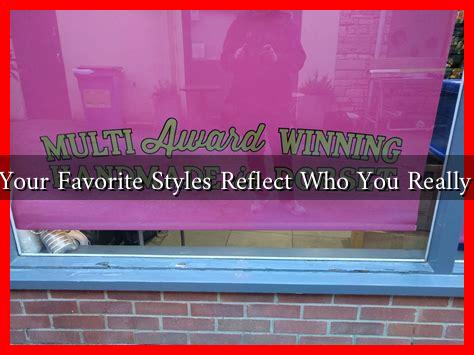-
Table of Contents
Do Your Favorite Styles Reflect Who You Really Are?
Fashion and personal style are often seen as mere expressions of aesthetic preference. However, they can also serve as profound reflections of our identities, values, and even our psychological states. This article delves into the intricate relationship between personal style and self-identity, exploring how our fashion choices can reveal who we truly are.
The Psychology of Fashion
Fashion is not just about clothing; it is a form of non-verbal communication. According to a study published in the journal *Psychology of Aesthetics, Creativity, and the Arts*, our clothing choices can significantly influence how we perceive ourselves and how others perceive us. This phenomenon is often referred to as “enclothed cognition,” where the clothing we wear affects our psychological states and behaviors.
How Style Reflects Identity
Our favorite styles can be indicative of various aspects of our identity, including:
- Personality Traits: Research shows that people often choose styles that align with their personality traits. For instance, extroverts may gravitate towards bold colors and patterns, while introverts might prefer more subdued tones.
- Cultural Background: Fashion is deeply intertwined with culture. Traditional garments or styles can reflect one’s heritage and cultural identity.
- Social Status: Clothing can signify social class and economic status. Luxury brands often serve as status symbols, while thrifted or vintage styles can reflect a more sustainable or individualistic approach.
- Values and Beliefs: Many individuals use fashion to express their beliefs, such as eco-consciousness through sustainable fashion choices or political statements through slogan tees.
Case Studies: Fashion Icons and Their Impact
To illustrate how personal style can reflect identity, consider the following fashion icons:
- Rihanna: Known for her bold and eclectic style, Rihanna often uses fashion to challenge norms and express her individuality. Her choices reflect a confident persona that embraces diversity and creativity.
- Steve Jobs: The late Apple co-founder was famous for his minimalist black turtleneck and jeans. This uniform not only simplified his life but also reflected his focus on innovation and functionality over superficiality.
- Audrey Hepburn: Hepburn’s classic and elegant style in films like *Breakfast at Tiffany’s* has become synonymous with grace and sophistication, reflecting her timeless appeal and cultural impact.
Statistics on Fashion and Identity
Several studies highlight the connection between fashion and identity:
- A survey conducted by the *American Psychological Association* found that 62% of respondents believe that their clothing choices significantly impact their self-esteem.
- According to a report by *Mintel*, 45% of consumers feel that their clothing reflects their personality, with younger generations being more likely to express themselves through fashion.
Fashion as a Tool for Self-Expression
Fashion allows individuals to express their identities in unique ways. For many, it serves as a canvas for creativity and self-exploration. Social media platforms like Instagram and TikTok have further amplified this trend, enabling users to showcase their styles and connect with like-minded individuals. The rise of influencers has also led to a democratization of fashion, where personal style is celebrated regardless of traditional fashion norms.
Conclusion: The Intersection of Style and Identity
In conclusion, our favorite styles do reflect who we really are. Fashion serves as a powerful medium for self-expression, allowing us to communicate our identities, values, and beliefs to the world. Whether through bold choices or minimalist aesthetics, our clothing can reveal much about our personalities and life experiences. As we continue to navigate the complexities of identity in a rapidly changing world, it is essential to recognize the role that fashion plays in shaping and reflecting who we are.
For further reading on the psychology of fashion, you can explore resources from the American Psychological Association.

